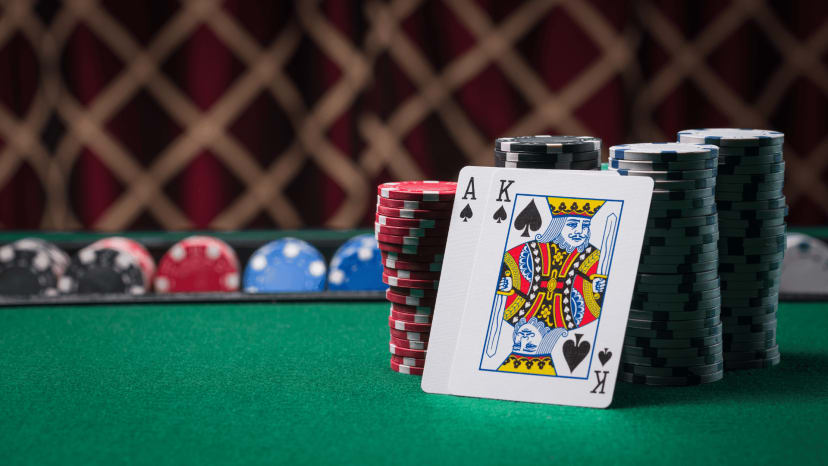Poker Life Lessons Applicable in Real Life Situations

Life is often a game of risks. One must assess situations, make informed decisions, and maintain consistency to cut it. In fact, nobody will teach you all these things, as it’s all about learning from mistakes. But if you like playing offline or online poker, there are many poker life lessons to apply. So, to cut it short, here are some essential life skills to derive from playing poker.
Lesson #1. Patience Pays
One thing is sure: most casino players are afraid of playing online casino poker. Instead, they are attracted to those deceptively shiny slot machines and roulette wheels. Beginners claim that poker is too challenging to master compared to luck games, where players just hit “spin” and wait for the outcome.
In their defense, though, a specific set of skills is necessary to cut it in the tricky poker world. This is true whether playing at brick-and-mortar casinos or top online casinos. But if you’re patient enough to nurture your skills, you’ll start winning more poker hands than spins at a slot machine. Note that it takes lots of time and practice to be a master poker player. The life lesson? Patience and dedication are essential in life.
Lesson #2. Discipline & Focus
Unlike games of luck, poker players must be disciplined on the table and only focus on the action. Players must ensure that they play every hand optimally and keep track of every card when it is dealt. And because you have zero control over how the cards are issued, don’t waste mental energy over it.
The same applies to real-life situations. Life will deal you multiple challenges that you often can’t control. So, instead of playing blame games, focus on finding a way to wriggle out of the situation. For example, don’t sit around crying after losing your job. Get up and find another!
Lesson #3. Make Bold Decisions
You’ve probably come across those passive poker players who are afraid of making risky decisions. While it sometimes works, such players end up losing more than they win. Sure, their losses are not that big. But in the end, their bankroll will take a beating.
In addition, bold poker players will typically trigger the $100K pot, which conservative players cannot. The life lesson here is that people who don’t take calculated and bold risks lose. Remember the saying that fortune favors the brave?
Lesson #4. Bluffing Works But Not Always
Bluffing is a common term when playing poker at casinos. It means camouflaging a weak hand to look strong and vice-versa. In return, other players on the table can feel intimidated by your moves and fold. But it doesn’t always work when playing against seasoned pros who can easily read your actions.
The same applies in life. Although some fake it till they make it, this will only harm them in the long run. You can go on impressing the whole world with a flamboyant lifestyle, but you’re suffering in silence. So, don’t display a fake character just for public relations. Your mum or partner will likely know you’re faking it!

Lesson #5. Bankroll Management is Critical
First, this point cuts across all gambling activities, including sports betting. In online poker, things often go south, and players lose a lot of funds. So, to effectively absorb the shocks of losing, creating a gambling budget is paramount. Divide it into smaller daily, weekly, or even monthly gambling units.
Similarly, life is all about managing finances. It’s possible to get carried away during a payday and blow half your pay on impulse buying. Therefore, budget your funds and only purchase what you need. Don’t buy a sleek Ferrari with all your life savings when you know that hospital insurance and other bills haven’t been settled.
Lesson #6. The Ability To Calculate Risk
Whether it’s in poker or in business, it’s important to get good at calculating and managing risk.
Do you understand the trade-offs? Would you bet all your money on a bad hand? You shouldn’t – and you wouldn’t in business either. Both poker and business are unpredictable, which makes measuring potential gains and losses, factoring in every possibility, and reflecting on the types of risk involved key to making the right move – whether that has to do with a bluff, raise, or fold, or with marketing decisions, budgeting allocations or project plans.
Both at the poker table and in the boardroom, risk calculation involves performing some quick math, making assessments, and using your instinct.
Lesson #7. Reading People Is Very Important
Reading people leans into negotiation. These are two factors that are helped by an ability to function well in business, poker, and life. When you play poker online or at a land-based casino, to be able to stay one step ahead, you must be able to anticipate the other player’s moves, tells, and weaknesses.
With business, whether it’s colleagues, customers, or competitors, reading people is undoubtedly an essential skill.
Understanding people and being able to assess the situation clearly allows you to engage in a meaningful way, get through to people, motivate and inspire, and respond in the best way – whether it’s seeing the potential of an employee and placing them in the right position, selling to a potential client, or while talking with an occasional interlocutor.
Lesson #8. Always Learning
Learning is a continuous process in online casino poker. Even the most decorated players typically find themselves in sticky scenarios where they must figure out a quick solution. For example, a “fish” on the table can pull a fast one on those overrated pros, leaving them in shock.
Life is full of surprises, sometimes from the least expected source. But by now, you should know that the solution is never far away. It’s common for a teacher to learn a thing or four from their student. So, in conclusion, always be attentive and give a listening ear.
Conclusion
Poker is definitely not your usual casino game. This is evidenced by John von Neumann, an American mathematician and computer scientist who applied poker bluffing in politics, warfare, psychology, and other fields of study.
But the good thing is that you don’t need a big budget and a library to apply these poker life lessons. Make more calculated moves, learn other people’s behaviors, and have a budget for everything. Overall, there’s more to poker than winning and losing.
FAQ
How Can Poker Improve Decision-Making Skills in Daily Life?
Poker sharpens decision-making by teaching players to assess situations quickly and accurately. It emphasizes the importance of reading scenarios, understanding odds, and making decisions based on incomplete information. These skills are directly transferable to everyday life, where quick and informed decisions are often required in both personal and professional contexts.
What Poker Tactics Can Be Used to Enhance Personal Finance Management?
Poker teaches financial discipline and risk assessment. Players learn to manage their bankroll, avoid impulsive decisions, and understand the value of strategic investments. Applying these principles to personal finance can help in budgeting, saving, and making prudent financial decisions, such as when to take risks and when to be conservative with expenditures.
How Does the Concept of Risk vs. Reward in Poker Apply to Real-Life Situations?
In poker, players often weigh the potential risk against the possible reward of a decision. This concept is highly applicable in real life, especially in areas like career choices, investments, and even personal relationships. It teaches the importance of evaluating the potential outcomes of actions and making choices that balance risk with the potential for positive returns.
Can Poker Teach Effective Emotional Control and Resilience in Life?
Poker players must learn to manage their emotions to avoid 'tilting' — making poor decisions due to frustration or anger. This emotional control is crucial in real life, helping individuals remain calm under pressure, think clearly in stressful situations, and bounce back from setbacks. Resilience and emotional regulation learned from poker can lead to better stress management and more effective problem-solving.














